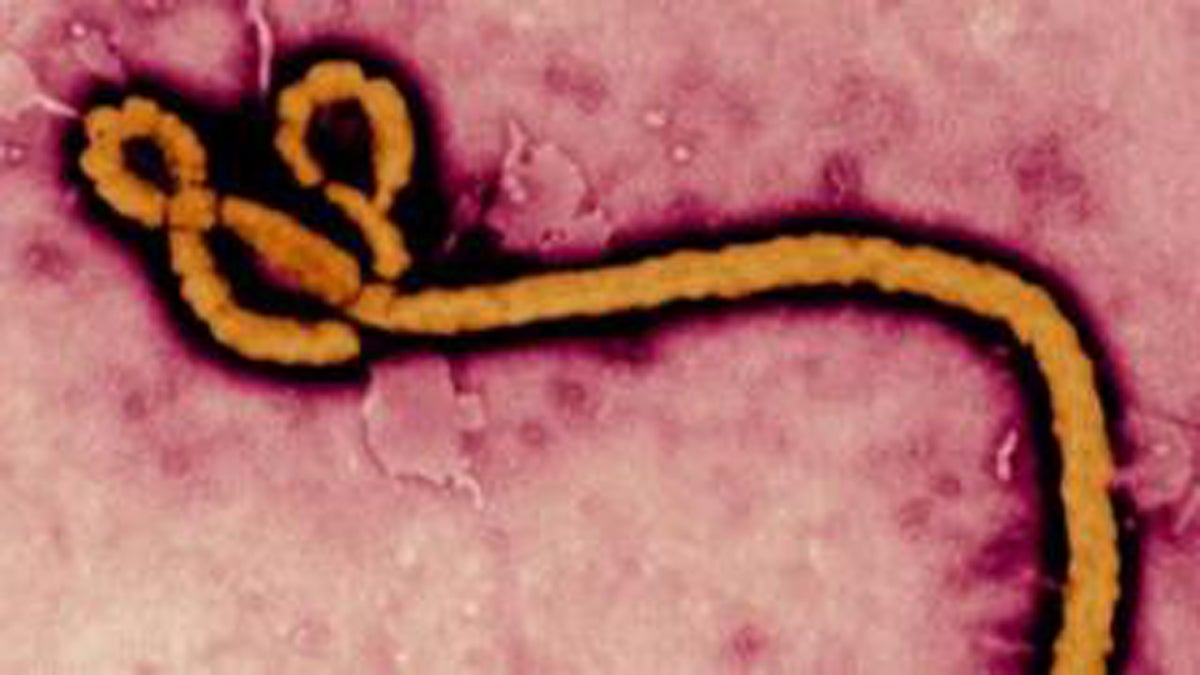GlaxoSmithKline ready to test Ebola drug in Liberia

The Ebola virus (NewsWorks File Photo)
A potential Ebola vaccine from pharmaceutical giant GlaxoSmithKline has cleared another hurdle.
Following a safety trial in the fall, developers will now test the drug in Liberia, one of several countries hard hit by the 2014 spread of the virus in West Africa.
Vaccine development typically takes years, but the death toll, media attention and renewed political have accelerated the timeline.
About 8,600 people have died in the latest Ebola outbreak.
Ripley Ballou with GSK Biologicals in Belgium said the plan is to recruit 10,000 volunteers to receive the GSK vaccine. Another 10,000 study participants will get a placebo. A third group of 10,000 would get a candidate vaccine from drugmaker Merck.
Health workers in Monrovia who care for patients with Ebola will be among the first to receive GSK’s drug.
“But we will also be widely going out and recruiting from the communities where Ebola virus cases are being identified,” Ballou said.
The researchers want to sign up healthy volunteers living in neighborhoods affected by Ebola. People already sick with the virus are not eligible to join the trial.
Ballou said the first step was to be “reasonably confident” that GSK’s vaccine is safe because of the many people are expected to join the study.
In September, the vaccine was first tested for safety in about 300 people in the United States, United Kingdom, Mali and Switzerland.
There are early signs that it prompts an immune response to the Ebola virus. Those data were published in late 2014.
Ballou says the next step is to figure out if the vaccine can protect people from infection.
Friday afternoon, GSK was still waiting for final approvals in hopes of starting the Liberia phase of the trial in coming weeks.
In August, Ballou talked about the backstory for the development of the candidate vaccine: An Italian biotechnology company, Okairos, later purchased by GSK, first came up with the vector system — a way of delivering the vaccine.
It uses a type of cold virus from chimpanzees. Ballou said the particular chimp adenovirus is one that does not normally cause illness in humans.
“There is genetically engineered into the vector a small piece of the Ebola genome that encodes for a protein that’s found on the surface of the Ebola virus,” he said.
The genetic material from the Ebola virus is weakened before it is used in the vaccine.
“The way it’s made — it affects a few cells in the body — but doesn’t replicate,” Ballou said.
In animal studies, when monkeys were given the vaccine they were protected against highly lethal Ebola exposures, Ballou said.
WHYY is your source for fact-based, in-depth journalism and information. As a nonprofit organization, we rely on financial support from readers like you. Please give today.

